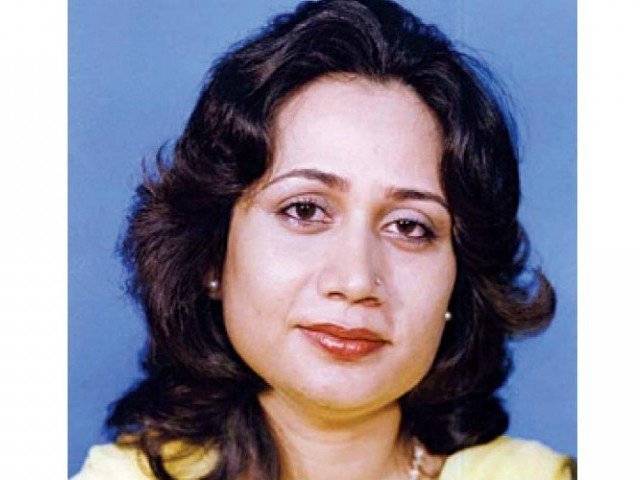Many years ago, a young man was crying on the 26th of December, on a radio show. It was Parveen Shakir’s death anniversary and he was over-whelmed. And much to my dismay now, I had laughed at him, out of my childish frivolity.
I realized much later, that people can fall in love with poets and miss them like their own kin. And in Parveen Shakir’s case, it was even more likely, for reasons even Shakir was aware of- her physical charms.
No poet has had the meteoric rise in the last three decades, like the one Shakir did. By the time her first book, Khushbo (Fragrance) was published, she was already renowned. The book was republished within six months, still a rare honour in Pakistan.
Shakir focuses on love, its mutuality, reciprocity and even a desire for sensuality. She not only brings a feminine perspective and sensibility to poetry but also picked up issues unique to women, like motherhood, childbirth, pregnancy, divorce and being a woman in a patriarchal society.
“Pink flowers blossomed in the season I met you. With your attentions they are opening again, though these wounds had healed already.”
(“Pink Flowers” by Parveen Shakir, translated by Alamgir Hashmi.)
While writing her first book, she was just a young girl, still unmarried and relatively unrestricted. The subsequent books show the transition in her life - her struggles, as she confronts the same issues many women in Pakistan do: an unequal marriage, early motherhood, omnipresent in-laws, work-life balance and indeed a divorce. Shakir came to believe she was not understood in her own family, in-laws and marriage - her passion for poetry was especially not understood. Indeed, her reputation as a brilliant poet did not protect her from the all-pervasive patriarchy.
Shakir was an exception in many ways; her command over poetry was at par with that of any living poet of her time, but she was still very young. Many men desired her, within and outside the literary circles. This further led to vicious rumours. However, she continued to write, getting critical acclaim from the likes of C.M. Naim, Zia Mohyeddin, Munir Niazi, Fehmida Riaz, Amjad Islam Amjad and Ahmed Faraz. Many singers such as Ghulam Ali, Abida Parveen, Bilques Khanum and the king himself, Mehdi Hassan, embraced her verses thus paying a tribute more long-lasting than any criticism. Along with her appearances in mushairas (recitals) around the world, she made television appearances, giving interviews and holding discussions with her contemporaries.
However, there is more to Parveen Shakir than her feminist ethos and poetic prowess. Her dilemmas and anxieties represented the anxieties an educated, urbanised middle class had in harmonizing tradition and modernity.
Her poetry covered her sorrowful first love that she was forced to end due to familial pressure, her demanding marriage that failed and an affair after her divorce, again ended out of societal pressure. She was the solitary and forlorn lover who expressed her grief through her poetry, in a conservative society that was gradually becoming more radicalized under Zia-ul-Haq’s dictatorship. Her poised femininity, eloquent Urdu, candidness and seclusion made her an attractive enigma. There was a sincerity in her dissent; she often referred to herself in both the first and third person (a rarity for women in Urdu poetry), or even as a “girl” instead of a woman, using lucid instead of ornate verses.
“Listen, girl, these moments are clouds: you let them pass and they’re gone. Soak up their moist touch. Get drenched. Don’t waste a single drop. Listen, downpours don’t remember streets, and sunshine can’t read road signs“
(“To A Friend” by Parveen Shakir, translated by C.M.Naim)
The lover in Urdu poetry is intense, sentimental to the extent of being maudlin and often remorseful because in our society, often love is simply not enough. The other lover is lost, remembered, imagined and encountered, because the feeling of love lasts much longer than the relationship. To this love, Shakir brought an unabashed feminine mystique, much more intimate and straightforward than the generations of women before her.
“Where am I in your life?
In the morning breeze or the evening star, hesitant drizzle or sharp rain, silver moonlight or hot noon, deep thoughts or casual tunes?”
(Poem “Where Ami I?” by Parveen Shakir, translated by Alamgir Hashmi.)
Shakir was not coincidentally herself the embodiment of the forlorn lover, a “misfit” (as the poetess described herself) who articulated her deepest desires, failures and shortcomings.
This caught the public imagination, which was further “excited” by her untimely death in a car crash. Not very dissimilar to what happened with Keats, Byron, Shelley and Rimbaud, as well as more recently Sylvia Plath. Their youthful persona is frozen in public memory. And so it was with Shakir as well.
Her short life has left a room for imagination and counterfactuals, as to what more she would have accomplished – had she lived longer, had she been more financially secure, or had she been more emotionally stable. We do not know.
A few months ago, I attended a mushaira in Lahore and was fairly disillusioned. Though most of the poets were well-known, other than Amjad Islam Amjad no one stuck a chord with me. There were just two women, both old homemakers, with the most prosaic and repetitive of poems. The youngest poet was a boy, who was constantly giggling, while reciting his tortuously hackneyed verses. This is when Parveen Shakir crossed my mind, after several years – out of the blue, and I understood why that man on the radio had given her a tearful farewell.
She would have been much older now, probably white-haired and surely a high-ranked government sinecure post would have been hers. Or perhaps she would have been successfully married finally, and perhaps settled abroad (like her son). Hopefully, her despair would have mellowed by now. But again, who knows?
Nevertheless, in that mushaira, she would have almost certainly stood out and given a voice to her soul’s deepest disillusions, while most of us would have been searching for words. Perhaps her voice would have deepened, become more experimental or garnered a more political overtone. But all these thoughts are in vain, for she was the fragrance that has already scattered in the breeze, while our seemingly sedentary world disintegrates much more slowly.






